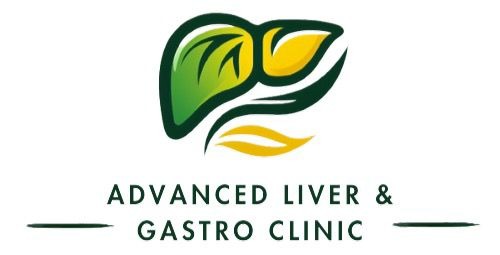Fatty liver disease is a condition where fat accumulates in the liver cells, leading to potential liver damage and affecting overall health. Fatty liver disease means you have extra fat in your liver. You might hear your doctor call it hepatic steatosis. Heavy drinking makes you more likely to get it. Over time, too much alcohol leads to a buildup of fat inside your liver cells. This makes it harder for your liver to work.
This condition can also occur due to several factors, including poor diet, excessive alcohol consumption, and obesity. While fatty liver disease may not always show symptoms, it is important to understand the role of diet and detox in managing this condition. This ultimate guide will help you explore the best dietary choices and detox tips to combat fatty liver disease and improve liver health.
Understanding Fatty Liver Disease
Fatty liver disease can be broadly categorized into two types: alcoholic and non-alcoholic fatty liver disease (NAFLD). While alcoholic fatty liver disease is caused by heavy drinking, NAFLD occurs when fat builds up in the liver without any alcohol involvement. If left untreated, fatty liver can progress to more severe conditions like cirrhosis or liver failure.
The Role of Diet in Managing Fatty Liver
A proper diet plays a crucial role in managing and even reversing fatty liver disease. Here are some dietary tips to keep your liver healthy:
Focus on Whole Foods: A diet rich in whole foods, including fruits, vegetables, whole grains, and lean proteins, can help reduce liver fat. These foods are packed with antioxidants, vitamins, and minerals that support liver function and detoxification.
Increase Fiber Intake: Foods high in fiber, such as oats, lentils, and leafy greens, help in detoxifying the liver and reducing fat accumulation. Fiber also aids in digestion and supports a healthy weight.
Limit Saturated Fats: Reducing your intake of unhealthy fats like those found in fried foods, processed snacks, and red meats can help prevent fat buildup in the liver. Opt for healthy fats from sources like avocados, olive oil, and nuts.
Incorporate Healthy Proteins: Protein helps in repairing liver tissue and maintaining its function. Include lean proteins like chicken, turkey, fish, tofu, and legumes in your diet.
Drink Plenty of Water: Staying hydrated is essential for proper liver function. Water helps in flushing out toxins and supports detoxification, which is key to managing fatty liver.
Limit Sugar and Refined Carbs: High sugar intake and refined carbohydrates found in sugary drinks, pastries, and white bread can contribute to fatty liver. Try to avoid these and instead opt for whole grains and low-glycemic foods.
Detox Tips for Fatty Liver
Detoxifying your body helps reduce liver stress and fat accumulation. Here are some tips to naturally detoxify your liver:
Green Tea: Green tea contains antioxidants known as catechins that may help reduce liver fat and support detoxification. Drinking a cup of green tea daily can provide significant benefits for liver health.
Lemon Water: The citric acid in lemons helps stimulate liver enzymes, promoting detoxification. Starting your day with a glass of lemon water can help your liver eliminate toxins effectively.
Turmeric and Ginger: Both turmeric and ginger have anti-inflammatory properties that support liver health. Including these in your diet or having them as a tea can help reduce inflammation and promote liver detox.
Milk Thistle: Milk thistle is a herb that has been traditionally used to support liver health. It helps in detoxifying the liver and protecting it from damage caused by toxins and excess fat.
Beetroot: Beetroot is known for its liver-cleansing properties. It helps in flushing out toxins and supports liver function by stimulating the production of bile.
When to Consult a Gastroenterologist
If you suspect you have fatty liver disease or are experiencing symptoms such as fatigue, unexplained weight loss, or discomfort in the upper abdomen, it’s important to consult a Gastroenterologist. An experienced Gastroenterologist can help diagnose fatty liver through blood tests and imaging. They will assess the extent of the liver damage and provide a personalized treatment plan, which may include dietary changes, medications, or lifestyle modifications.
If your condition is progressing, timely intervention by a specialist is crucial in preventing further liver damage and ensuring a healthier future. Seeking expert Liver Treatment in Wakad will guide you through managing fatty liver effectively.
Conclusion
It is always best to manage fatty liver disease through a proper diet and detoxification help in preventing its progression to more serious liver conditions. Focusing on whole foods, increasing fiber, and reducing unhealthy fats are key steps in supporting liver health. Additionally, incorporating natural detoxifiers like green tea and turmeric can further enhance liver function.
If you’re experiencing symptoms of fatty liver disease or need professional guidance, don’t hesitate to consult a Gastroenterologist in Wakad. Dr. Ujwal Zambare, a trusted specialist in Liver Treatment in Wakad, Pune offers expert advice and treatment plans tailored to your needs. Remember, early diagnosis and lifestyle changes can help you reverse fatty liver and maintain a healthy liver for years to come.
By following these dietary tips and detox strategies, you can improve liver health and manage fatty liver disease effectively.
